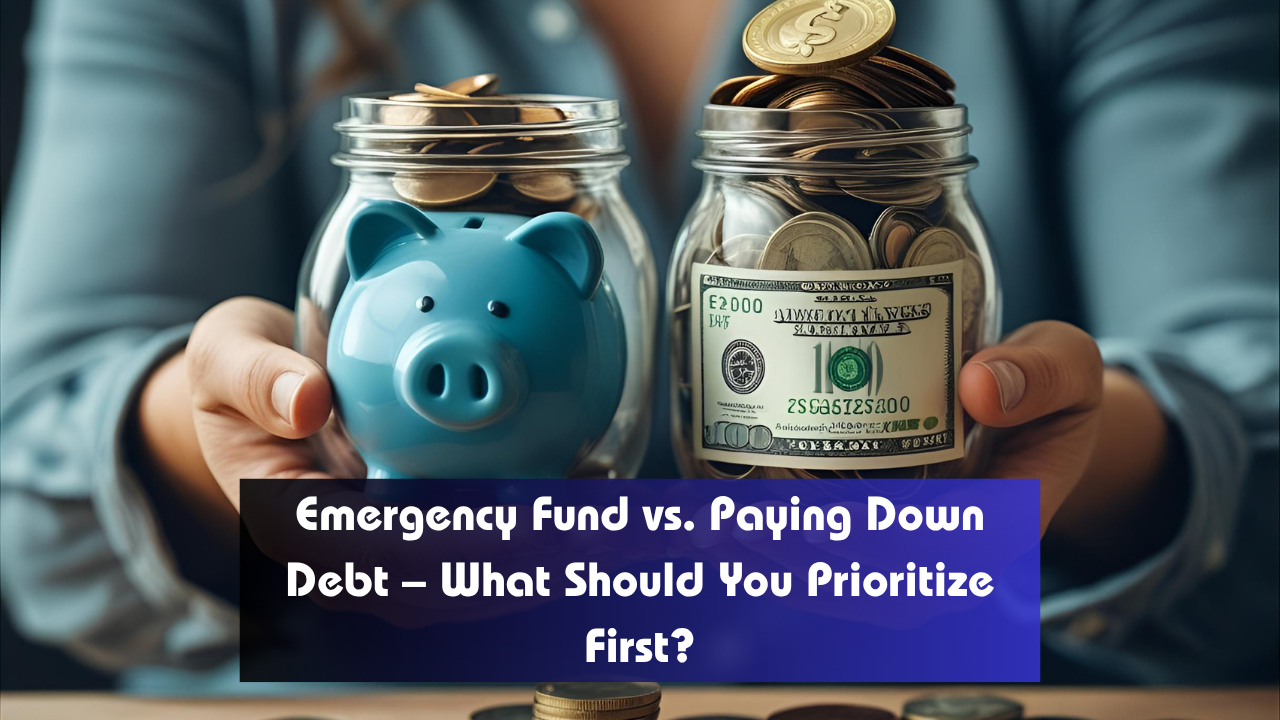If you’re trying to get your finances under control, you might be asking: Should I build an emergency fund or focus on paying down debt first? It’s a common dilemma—and the right answer depends on your individual circumstances.
Both goals are important for financial stability. Building savings can help you avoid more debt in the future, while paying off what you owe can reduce interest and increase your monthly cash flow. The key is to strike the right balance.
In this guide, we break down the pros and cons of each approach and help you decide which path to prioritize.
Table of Contents
- Why You Need an Emergency Fund
- The Case for Paying Down Debt First
- When to Prioritize Emergency Savings
- When to Focus on Debt Repayment
- Balanced Approach: Save and Pay Down Debt Simultaneously
- Comparison Table: Emergency Fund vs. Debt Payoff
- Final Thoughts
Why You Need an Emergency Fund
An emergency fund is a financial buffer that protects you from unexpected expenses such as medical bills, car repairs, or job loss. Without it, you may be forced to rely on credit cards or loans, which can worsen your debt situation.
Experts recommend starting with a mini emergency fund of $500 to $1,000, then gradually building up to 3–6 months’ worth of expenses.
Benefits of an Emergency Fund:
- Avoids new debt during financial crises
- Provides peace of mind
- Creates a financial safety net during layoffs or emergencies
The Case for Paying Down Debt First
Paying down debt—especially high-interest debt like credit cards—can save you money in the long run. Every month you carry a balance, interest compounds, making it harder to get ahead financially.
Benefits of Paying Debt First:
- Reduces monthly interest costs
- Improves your credit score over time
- Increases your disposable income
But if you don’t have even a small emergency fund, you may find yourself back in debt during a crisis.
When to Prioritize Emergency Savings
You should build an emergency fund before aggressively paying off debt if:
- You have no savings at all
- You work in a freelance or unstable job
- You have dependents or medical needs
- You’re at risk of unexpected expenses
In these cases, having a cash cushion—even a small one—is more important than knocking down your debt balance.
When to Focus on Debt Repayment
If you already have a basic emergency fund and your debt carries high interest (e.g., 20% credit cards), focusing on paying off those balances may be the better choice.
Choose debt repayment if:
- You have high-interest debt (15% or more)
- You already have $1,000+ in emergency savings
- You’re close to paying off a loan
- You want to free up cash flow quickly
Balanced Approach: Save and Pay Down Debt Simultaneously
For many people, the best strategy is a hybrid approach: save a small emergency fund while making steady debt payments.
Example Plan:
- Set aside $50/month into savings
- Use the rest of your surplus to pay off high-interest debt
- Once you’ve eliminated the highest-interest balances, increase your savings rate
This way, you’re protected from financial shocks while still reducing what you owe.
Comparison Table: Emergency Fund vs. Debt Payoff
| Criteria | Emergency Fund | Debt Payoff |
|---|---|---|
| Goal | Financial safety net | Reduce liabilities and interest |
| When to prioritize | No savings, unstable income, dependents | High-interest debt, stable income |
| Risk of not doing it | Forced to borrow during emergencies | Paying more interest over time |
| Immediate benefit | Peace of mind, financial flexibility | Lower monthly payments, higher credit |
| Long-term impact | Prevents future debt | Saves money and improves financial health |
| Recommended amount | $500–$1,000 (initial); 3–6 months’ expenses | Depends on type and size of debt |
Final Thoughts
So—emergency fund or debt payoff first? The answer is rarely all-or-nothing. Start with a small savings buffer to protect yourself from unexpected costs, then focus on tackling high-interest debt to improve your long-term financial health.
Striking a balance between the two can help you build resilience, avoid future debt, and move forward confidently.

